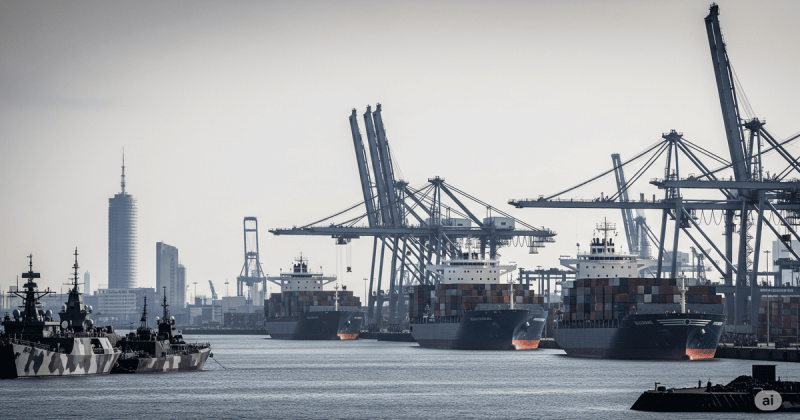Europe's largest port, Rotterdam, is actively preparing for a potential war with Russia, reserving space for warships and developing plans to reroute cargo in the event of hostilities.

The head of the port of Rotterdam in the Netherlands, Boudewijn Simons, said the port was coordinating with neighbouring Antwerp to manage the arrival of British, American and Canadian military vehicles and supplies in case of war with Russia. He stressed that not every terminal was suitable for military cargo.
The Financial Times writes about this.
Preparation for war and cooperation between ports
The port of Rotterdam, which stretches 42km along the Maas River in the Netherlands, handles about 436 million tonnes of cargo annually. It is part of a wider wave of military preparations across the continent. The European Union is drawing up a rearmament plan worth up to €800bn as it seeks to become more self-sufficient in defence in response to demands from US President Donald Trump and to deter Russian aggression.
The Netherlands, along with its NATO allies, has pledged to increase defense spending to 5% of GDP. In May, the Dutch Defense Ministry announced that Rotterdam would provide space to handle several military cargo ships at NATO’s request.
Boudewijn Simons noted that one or more ships would be moored at the quay for several weeks, four to five times a year. The Rotterdam container terminal is the only place where ammunition can be safely transferred from one ship to another. Annual military exercises are also planned.
“Not every terminal is suitable for handling military cargo,” Simons said.
He added that the ports of Rotterdam and Antwerp, which regularly receive cargo for US troops in Europe, now view each other less as competitors and more as partners ready to redistribute capacity if necessary.
Lessons from the pandemic and Russian aggression
The COVID-19 pandemic has exposed European countries’ reliance on a few suppliers of protective equipment and medicines, such as China and India. The sharp decline in Russian oil flows after the full-scale invasion of Ukraine was another lesson, Simons noted.
He called on European countries to stockpile more strategic reserves of essential materials, as they have done with oil since 1973.
“We need to do the same with things like copper, lithium, graphite and a number of other critical raw materials,” Simons said.
He added that areas around ports with good distribution networks are suitable for such storage. The EU plans to unveil a stockpiling strategy that would cover medical supplies, critical raw materials, energy equipment, shelters, and potentially food and water.
Despite the low assessment of the risk of direct invasion, NATO countries are preparing for a possible Russian attack on Europe in the coming years. Meanwhile, according to foreign intelligence, Russia is building up its military infrastructure on its western borders, particularly in the Baltic region and the Arctic.

